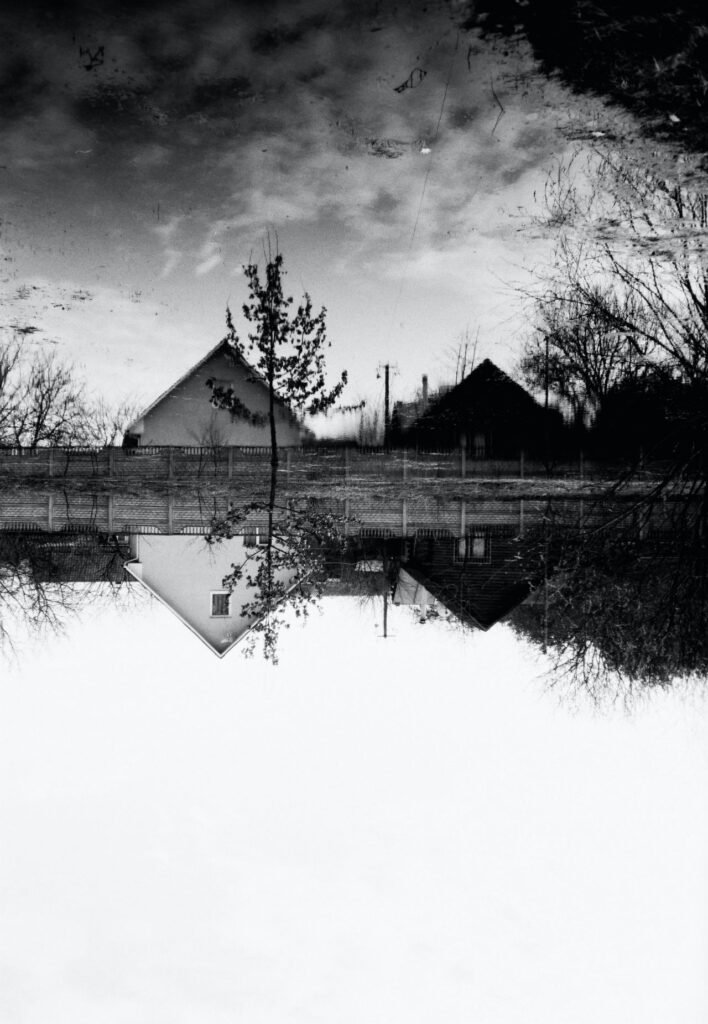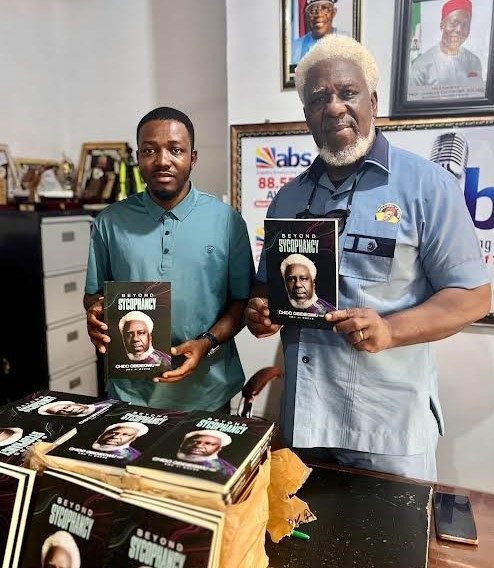By Dr. Charles Obiajulu Ugwu
Prologue: The Audibility of Collapse
There are moments in the life of a nation when decline is no longer a matter of statistics, policy failures, or whispered warnings. It becomes something visceral, something you can see, touch, and even hear. Nigeria has entered that moment. The collapse is no longer hidden in economic graphs or elite conferences. It has become audible. You hear it in the silence of classrooms where teachers no longer arrive, in the hum of generators replacing a dead national grid, in the cries of families priced out of food they once took for granted. Collapse is not an abstraction anymore; it echoes in daily life with a clarity that is terrifying.

For decades, Nigerians were told that reforms were on the way, that progress was just beyond the horizon, that the system could be fixed with one more policy, one more leadership change, one more international loan. But the horizon has kept receding, the promises multiplying even as conditions worsen. What we face now is not drift but a synchronized unraveling a convergence of crises that feed on each other until dysfunction itself becomes the organizing principle of society.
Politics no longer mediates competing visions of the future; it distributes spoils. The economy no longer creates opportunity; it entrenches scarcity. Religion, once a source of solace and moral direction, is manipulated into a tool for exploitation or division. The social contract between citizen and state has collapsed so fully that resignation has become the default survival strategy. People no longer expect change; they expect decay, and they adapt to it with a grim fatalism.
What is most chilling is that the collapse has reached the spaces once regarded as sanctuaries of hope. Civil society movements that once held power accountable have been diluted by co-optation. Youth, once heralded as the vanguard of transformation, now flee in waves, carrying their talents and frustrations to distant shores. Even moral voices such as religious, academic, cultural, increasingly echo the dysfunction rather than resist it. Instead of counterweights to decay, these institutions now line up in the queue of decline, hastening the plunge.
This is no ordinary national crisis. This is the slow-motion implosion of a system that has developed immunity to reform. Every effort to fix it is swallowed whole, every promise of renewal dissipates into exhaustion. The decay has become audible because it has penetrated every layer of existence, leaving no sanctuary untouched. And yet, within this audibility lies a paradox: collapse so visible, so undeniable, can become the very shock that awakens a dormant potential for rupture.
The world must understand: Nigeria is not simply “struggling.” Nigeria is teetering on the edge of systemic collapse whose reverberations will not stop at its borders. The sound of Nigeria breaking is a sound the world will eventually hear in migration flows, in security crises, in squandered human capital. What happens here matters everywhere. And so, the urgency cannot be localized. This is not just a Nigerian emergency. It is a global one.
The Web of Dysfunction
The unraveling of Nigeria cannot be explained as the failure of a single institution, nor even of a cluster of them. It is the emergence of a web of dysfunction a tangled ecosystem of political, economic, social, and cultural decay that not only coexists but reinforces itself, making disruption nearly impossible.
Politics has collapsed into a theater of spoils. Elections are less contests of ideas than auctions of loyalty. Policies are written not to chart a future but to distribute rents. The logic of governance is not service, but extraction. Every reform is filtered through this calculus, stripped of its potential, and weaponized to sustain the status quo.
The economy, rather than being a generator of opportunity, has become a fortress of scarcity. Oil wealth, mismanaged and looted, created a dependency that suffocates innovation. Agriculture, once the backbone of sustenance, has been abandoned to insecurity and neglect. Industry struggles under the weight of infrastructure collapse. For the average citizen, survival is not about climbing an economic ladder but navigating an economic minefield.
Religion, too, has been captured. Instead of offering transcendence, it too often sanctifies exploitation. Preachers preach prosperity while their congregants starve. Faith is wielded to divide rather than unite, to justify greed rather than call it to account. Religion, like politics, has been repurposed into a pillar of dysfunction.
Even culture, that vital reservoir of imagination, has been infected. Where once art and music might have been the seedbeds of dissent, they increasingly reflect escapism or capitulation. The stories told normalize corruption, trivialize suffering, and reinforce fatalism. Instead of resisting decay, culture mirrors it.
What emerges from this is not isolated dysfunctions but a system in which decay becomes self-sustaining. Politics protects the economic elite; the economy feeds corruption; religion justifies it; culture normalizes it. The dysfunctions become mutually reinforcing, forming a dense web that resists any attempt to cut through.
This is why every intervention fails. Policies collapse not because they are poorly designed, but because they enter a web programmed to neutralize them. The system has achieved a dark sophistication: its very dysfunction is what gives it resilience. And this resilience is precisely what makes the crisis so terrifying. Nigeria is not simply failing. Nigeria is failing in a way that resists disruption, a way that absorbs every shock, every reform, every outcry, and continues on its downward path.
The Betrayal of Hope
Perhaps the most corrosive dimension of Nigeria’s collapse is not material poverty or political instability, but the erosion of hope. For decades, Nigerians have been promised transformation. Structural adjustment was supposed to bring efficiency. Privatization was supposed to unleash growth. Anti-corruption drives were supposed to cleanse the system. Vision 2010, Vision 2020, endless national development plans each heralded as the dawn of a new era.
Each ended in disappointment.
What this cycle has produced is not merely economic stagnation but a deeper, more existential damage: a population that no longer believes in the possibility of renewal. Citizens adapt to scarcity, normalize hardship, and withdraw into private survival strategies. Emigration becomes the dream. Cynicism becomes the national mood. Even the youth, once celebrated as engines of change, often channel their energy not into rebuilding but into escaping.
This betrayal of hope is the most dangerous crisis of all, because it colonizes the imagination of the future. A nation can survive poverty if it believes tomorrow can be better. It can survive corruption if it believes corruption can be fought. It can survive insecurity if it believes peace is possible. But when hope dies, the nation begins to rot from within.
The betrayal of hope is not accidental. It is the byproduct of a system that thrives on exhaustion. Every reform that fails teaches citizens to lower their expectations. Every policy that collapses deepens resignation. The system’s genius lies not in its ability to govern but in its ability to demobilize. It does not need to deliver prosperity; it only needs to convince people that prosperity is impossible. That way, they stop demanding it.
This is why the crisis has reached a point of audibility. It is not simply about collapsing infrastructure or broken politics. It is about the silencing of hope itself, the resignation of millions who no longer expect that their nation can give them dignity. This resignation is the final stage of dysfunction and it is the most urgent to shatter.
The Global Mirror
It is tempting to imagine Nigeria’s collapse as a local affair, a domestic crisis to be endured by its citizens, observed with detached sympathy by the world, and perhaps managed with the occasional humanitarian gesture. But this illusion is already crumbling. Nigeria’s dysfunction has never stayed confined within its borders, and in the years to come, its reverberations will be felt everywhere.
The numbers alone should jolt the imagination. Nigeria is home to more than 220 million people, the largest concentration of human life on the African continent and one of the largest in the world. By the middle of this century, its population is projected to surpass that of the United States. To speak of Nigeria’s collapse, therefore, is not to speak of one nation’s decline but of the destabilization of a demographic giant whose trajectory will shape the global future.
Migration offers one of the clearest mirrors. Already, Nigerian youth are leaving in waves that no border wall, no visa regime, no offshore detention center can contain. They are filling universities, hospitals, and industries across Europe, North America, and Asia. They carry with them immense talent but they also carry the silent indictment of a homeland that has failed them. As collapse deepens, this flow will swell into torrents. The world will not be able to ignore it, because it will arrive at its shores not as statistics but as human beings seeking survival.
Security is another mirror. The weakening of Nigeria’s state has already opened vast spaces for armed groups, criminal networks, and extremist ideologies to flourish. From Boko Haram in the northeast to banditry in the northwest and militancy in the delta, the map of Nigeria is dotted with zones of ungoverned violence. These are not contained threats. They connect to transnational networks of smuggling, terrorism, and organized crime. A destabilized Nigeria is a destabilized West Africa, and a destabilized West Africa is a risk to global stability.
Economically, Nigeria holds the paradox of vast potential and chronic underperformance. Its oil wealth, mismanaged for decades, has locked it into dependency even as the world shifts toward energy transitions. Its youthful population, one of the largest concentrations of human capital on the planet, remains underemployed and undereducated. The cost of this squandered potential is not Nigeria’s alone. It is the world’s loss, for in a century where innovation and demographic vitality will decide global fortunes, the failure of Nigeria to harness its gifts weakens humanity’s collective progress.
Culturally, Nigeria has already proven itself a powerhouse. Its music, film, and art resonate far beyond its borders, shaping global imagination. But even here, collapse threatens. The export of culture without the stability of a flourishing society risks turning Nigeria into a paradox: a nation celebrated abroad for its creativity while decaying at home in the conditions that stifle it.
The global mirror reflects a sobering truth: Nigeria is too large, too strategic, too populous, and too interconnected to fail quietly. Its collapse will not be a local tragedy; it will be a global event. To speak of Nigeria’s dysfunction as merely “African problems” is to misunderstand the 21st century. In an interconnected world, the unraveling of one giant reverberates through migration, security, economics, and culture in ways no nation can escape.
For the world, then, Nigeria’s crisis is a test. It is a test of whether global actors can see beyond charity to solidarity, beyond pity to urgency, beyond managing symptoms to addressing root causes. For Nigerians themselves, it is a mirror held up to show that their struggle is not just about national pride or domestic survival but about shaping the trajectory of global humanity.
The sound of Nigeria breaking will be heard everywhere. The only question is whether it will be the sound of irreversible collapse or the sound of a rupture that births something new.
Beyond Reform
Reform has become the most overused and least effective word in Nigeria’s political vocabulary. For decades, successive governments have announced reforms with fanfare, dressed them in the language of urgency, and paraded them as solutions to the nation’s woes. Structural Adjustment Programs in the 1980s. Anti-corruption crusades in the 1990s. Privatization and deregulation in the 2000s. Poverty alleviation schemes and grand development visions in the decades that followed. Each was heralded as the turning point. Each ended in disappointment.
The pattern has become tragically predictable. A reform is announced. Citizens, weary but still hopeful, allow themselves to believe. For a brief moment, optimism stirs. Then the reforms are swallowed whole by the system itself. Bureaucratic inertia absorbs them. Corruption diverts them. Politics repurposes them. And the lives of ordinary people remain unchanged or worsened. Reform after reform has been metabolized into the very dysfunction it sought to cure, leaving behind nothing but greater cynicism.
The truth is that Nigeria’s system has developed a sophisticated immunity to reform. Like a virus that adapts to every new drug, the system evolves new ways to neutralize interventions. Policies that might have worked elsewhere collapse here under the weight of patronage and impunity. Tools that lifted nations from post-war rubble or post-colonial stagnation falter in Nigeria, because the logic of the system is not to build but to consume. Reform presumes that the system wants to get better. But Nigeria’s system does not. It has found stability in dysfunction, a grim equilibrium in decay.
This is why incrementalism must die. Incrementalism assumes a machine that will respond to nudges, a structure that can be improved gradually. Nigeria’s machine is not broken in parts; it is corrupted at its core. It does not need oiling; it needs dismantling. Every attempt to repair it only strengthens its resistance. The playbook of orthodox reform, borrowed policies, technocratic fixes, donor-driven projects has reached the end of its usefulness. It is not merely insufficient; it is counterproductive.
What Nigeria requires now is rupture, a decisive break with the logic of the existing order. Not another round of adjustments but a leap beyond the system altogether. Rupture is not about patching holes in a sinking ship. It is about building an entirely new vessel and abandoning the wreck. It is not about tweaking the rules of a rigged game. It is about walking off the field and inventing a new one.
This is not rhetoric. It is realism. No nation trapped in a cycle of self-consuming dysfunction has ever been redeemed by gradual reform. History shows us that transformation comes only when societies abandon the comforting lie that tinkering will suffice and embrace the terrifying truth that only reinvention will do. Nigeria is at that threshold. The betrayal of hope, the collapse of sanctuaries, the audibility of dysfunction all of it has brought us to the recognition that the old methods are dead.
The danger is not that Nigerians do not understand this. The danger is that exhaustion will seduce them into believing that nothing else is possible. That is the final victory of dysfunction: not merely to ruin the present, but to colonize the imagination of the future. To resist that victory is to insist that rupture is not only necessary but possible. It is to declare that the end of reform is not the end of hope but the beginning of a new horizon.
The choice before Nigeria is stark. Continue down the well-worn path of reform, guaranteed to end in deeper cynicism, or summon the courage to leap beyond reform into radical reinvention. The hour is late. The collapse is audible. Incrementalism is over. Only rupture remains.
The Leap Beyond the System
To speak of rupture is to speak of courage — the courage to abandon what is familiar, even when it is failing, and to step into the terrifying unknown of reinvention. Nigeria stands precisely at this threshold. The familiar paths are exhausted. The language of reform has become empty ritual. The institutions that once carried hope are now compromised. What remains is the leap: a bold departure from the logic of the system itself.
But what does it mean to leap beyond a system? It means recognizing that the structures producing dysfunction cannot be the vehicles of transformation. It means refusing to fight decay on its own terms. Instead, it requires inventing entirely new logics, new practices, new spaces of possibility that cannot be co-opted or consumed.
In politics, the leap means dismantling the culture of patronage that has made governance a marketplace of spoils. It requires reimagining power not as access to state rents but as stewardship of collective destiny. This does not come by tweaking electoral rules or passing new anti-corruption laws as the system digests such measures with ease. It comes by building new political formations, rooted in transparency, accountability, and merit, that bypass the machinery of corruption altogether. It comes by shifting the center of political gravity from the state to the citizen, from secrecy to radical visibility.
In economics, the leap means breaking free from the addiction to rents. Nigeria’s wealth has long been tied to crude oil, a single resource that has distorted incentives and created a culture of dependency. The leap is to treat oil not as the foundation of the economy but as an obsolete crutch, to be discarded as swiftly as possible. It means reorienting energy, capital, and creativity toward productive sectors such as agriculture, technology, manufacturing and building an economy where value is created by innovation, not extracted by rent-seeking.
In religion, the leap means reclaiming the prophetic voice. It means stripping away the capture of the pulpit by power and returning faith communities to their role as moral guardians and incubators of justice. When religion baptizes dysfunction, it betrays its essence. But when it calls power to account, when it affirms dignity over greed, it becomes a force of liberation. The leap here is a radical purification — a refusal to allow faith to be weaponized for exploitation or division.
In culture, the leap means reawakening imagination. Dysfunction survives by suffocating vision, by convincing people that no alternative exists. Culture must puncture this lie. Through art, literature, music, and storytelling, Nigerians can reimagine themselves, reclaim the narrative of their future, and declare that the old scripts no longer bind them. Culture is not decoration. It is weaponry. It is the soil from which new realities grow.
The leap beyond the system is not a set of technical policies. It is a philosophy of transcendence. It is the recognition that survival within decay is not destiny, that adaptation to dysfunction is not resilience, that resignation is not wisdom. It is the audacity to declare that Nigeria can, and must, abandon the operating system of decay entirely.
This leap will not be safe. It will not be linear. It will not be endorsed by those who profit from the old order. But history shows us that no nation reborn has ever taken the path of safety. Renewal is always a gamble, always an act of defiance against the gravity of collapse.
Nigeria is called now to that defiance. To leap is to break the spell of inevitability, to refuse the fatalism that says nothing can change. To leap is to create momentum immune to the drags of corruption, apathy, and resignation, because it does not seek legitimacy from them. It is to build a new Nigeria not by repairing the old, but by transcending it.
The leap beyond the system is not utopia. It is survival. It is destiny reclaimed. It is the only path left.
The Design of a New Momentum
A leap, however audacious, cannot survive without an intentional design, a framework that channels energy, coordinates action, and insulates innovation from the corrosive forces of decay. Nigeria has reached the point where improvisation is no longer sufficient. What is required now is an architecture of momentum that is radical in its design, resilient in its logic, and revolutionary in its capacity to bypass systemic resistance.
The first pillar of this architecture is redistribution of agency. Momentum cannot be built from the top down because the top is saturated with the logic of dysfunction. It must emerge from the edges — from citizens, communities, innovators, and moral actors who operate beyond the reach of compromised institutions. Power must shift to those willing to transcend decay, to those who will not negotiate with the old order. This is not mere decentralization; it is the deliberate creation of autonomous spaces where new rules, new ethics, and new incentives govern activity.
The second pillar is radical transparency. Immunity to corruption and inertia arises when every action, every resource, every decision is visible to all. Systems must be designed so that opacity becomes impossible and manipulation, futile. Digital tools, citizen-led oversight, and decentralized verification mechanisms can create accountability that is self-enforcing, leaving little room for co-optation. Transparency is not an ethical aspiration here; it is structural armor.
The third pillar is dynamic adaptability. The new momentum cannot be fixed or rigid. It must be a living, responsive system that evolves as the environment shifts, as threats arise, and as opportunities appear. Policies and institutions cannot be static; they must be modular, experimental, and capable of self-correction. In a system where decay has become a virus, adaptability is the vaccine.
Fourth, value-driven resilience must anchor all action. Momentum must be tethered to principles that cannot be co-opted: integrity, meritocracy, innovation, and civic responsibility. Where the old order thrived on expediency, the new system thrives on ethics. Where it thrived on shortcuts, the new system thrives on excellence. This moral core is what ensures that momentum is not hijacked, and that even when tactical errors occur, the trajectory remains regenerative.
Fifth, strategic amplification. Transformation in isolation is fragile. The architecture must create mechanisms for rapid scaling of successful initiatives. Ideas, technologies, and practices that demonstrate impact must be propagated, networked, and protected from sabotage. Momentum feeds on replication. Success must be contagious.
Sixth, cultural recalibration. The architecture must harness the power of narrative, myth, and shared imagination. Momentum cannot survive in a vacuum of belief. Citizens must see themselves not as victims of decay, but as architects of resurgence. Culture through storytelling, media, art, and public rituals, must reinforce the legitimacy of the new order and delegitimize the old one. The audibility of collapse can be repurposed into the resonance of hope.
Finally, global resonance. This momentum cannot be entirely insular. Nigeria exists in a hyperconnected world; migration flows, trade networks, security dynamics, and cultural influence make the nation’s trajectory globally consequential. The architecture must interface strategically with external actors who can support the leap without co-opting it. Partnerships must amplify, not absorb; they must catalyze, not dilute.
Together, these pillars form an architecture capable of transforming audibility into action, despair into energy, and systemic collapse into regenerative momentum. This is not a blueprint in the conventional sense. It is a living framework, a set of principles and structures that can organize action outside the reach of the old order, making the leap beyond the system both possible and durable.
The architecture of new momentum is, in effect, the scaffolding of rebirth. It converts rupture from a dangerous gamble into a structured insurgency against decay, a disciplined insurgency that refuses to be consumed by the very system it seeks to transcend.
Closing Declaration: The Audacity of Now
Nigeria is not drifting. Nigeria is breaking. The fractures are no longer hairline cracks hidden in statistics; they are gaping wounds visible in daily life. Politics has collapsed into spoils, the economy into scarcity, religion into exploitation, culture into resignation. The dysfunctions are no longer separate illnesses; they are organs of a single diseased body, feeding each other in a grotesque equilibrium. Collapse has become audible. And yet, the nation staggers on, as if the sound of its own disintegration were background noise.
This must end.
The world must understand: Nigeria is not merely another struggling nation on the global periphery. It is a demographic titan, a cultural powerhouse, a security fulcrum, an economic giant in potential if not yet in fact. To imagine that Nigeria can fail quietly, in isolation, is the most dangerous illusion of our age. A Nigeria that collapses will not stay within its borders. It will migrate, destabilize, destabilize further, and echo across continents. Its failure is not Nigeria’s failure alone. It is a wound in the body of the world.
But here is the greater danger: the system in Nigeria has mastered the art of endurance. It does not need to produce prosperity to survive; it only needs to reproduce despair. It survives by exhausting hope, by teaching citizens to adapt to hardship, by dulling the imagination of change. Its true victory is not corruption or inefficiency, but fatalism. It has convinced too many that nothing else is possible. That is the shackle most powerful of all.
It is time to shatter it.
To Nigerians, this is the hour to refuse complicity in your own impoverishment. To refuse survival as destiny. To refuse the lie that your brilliance must always bloom abroad, that your energy must always fuel other nations, that your children must inherit nothing but ashes. The rupture must begin in the imagination, the collective decision that the old order is no longer legitimate, that its promises are bankrupt, that its rules do not bind you. This is not rebellion for its own sake. This is survival, dignity, and destiny reclaimed.
To you the custodians of the status quo, political elites, religious opportunists, economic predators, cultural cynics, hear this clearly: the equilibrium you guard is an illusion. You are not insulated from collapse; you are sustained by it. And when the center gives way, as it must, your havens will not protect you. The system that has fed you will consume you. Your vulnerability is mutual, your survival tied to the very masses you exploit. If you do not join in rupture, you will be buried in collapse.
To the world, this is your mirror. The choice before you is not whether Nigeria matters, but how. You can invest in rupture, in the audacious reinvention of a giant or you can wait for collapse to arrive on your shores in the form of mass migration, economic disruption, and security crises. There is no neutral option. To ignore Nigeria is to gamble with the 21st century.
And so, let this be the declaration: the era of reform is over, the era of rupture has begun. The old playbook is dead. The logic of decay has been exposed. The collapse is audible, and so too must be the call to transcend it. Not tomorrow, not after one more election cycle, not after one more international summit. Now.
Nigeria must leap beyond the system, or be swallowed by it. There is no middle path left. And in that leap lies not only Nigeria’s survival, but the possibility of a renaissance so profound that it redefines what it means to be African, what it means to be human in the 21st century.
This is the audacity of now: to believe that even in collapse, rebirth is possible; to act with urgency so fierce that no drag, no corruption, no cynicism can withstand it. Let the world hear the sound of Nigeria not as a dirge of decay, but as the thunderclap of a giant awakening.
The rupture is not optional. It is inevitable. The only question is whether it will destroy, or whether it will deliver. The choice belongs to us and the time is already upon us.
About the Author
Dr. Charles Obiajulu Ugwu is a distinguished economist, strategist, and thought leader with deep expertise in systemic transformation and strategic turnarounds. Over the course of his career, he has worked across sectors to design frameworks for sustainable development, institutional renewal, and economic resilience in contexts of deep dysfunction. His work combines rigorous analysis with bold, creative visioning, positioning him as one of the foremost voices in reimagining Nigeria’s future and its role in the global order.



























